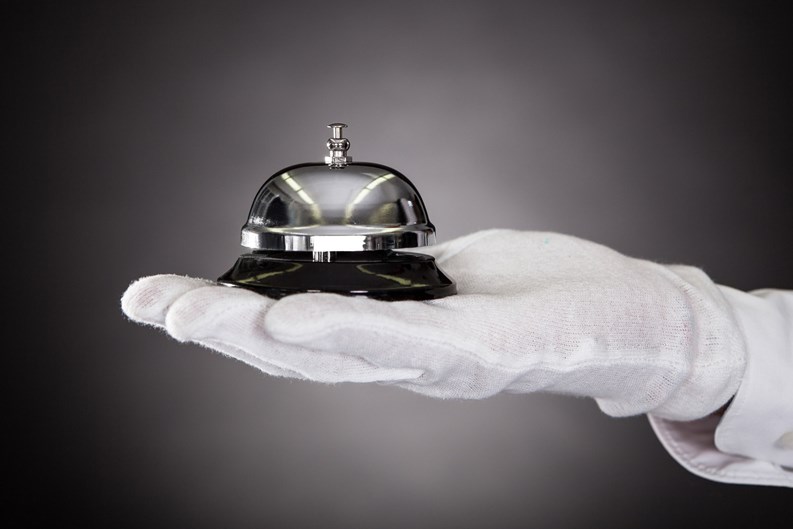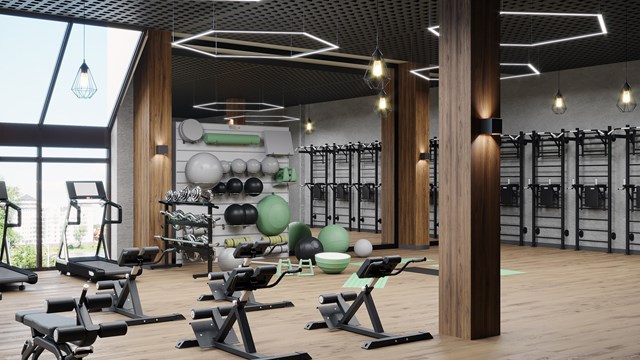Everyone can use a little help now and again. The residents of condominiums, co-ops or homeowners’ associations are no exception. There are tons of tasks that just cannot be left up to the board or residents who are busy people themselves, juggling multiple roles and responsibilities of their own.
To lighten the proverbial load, many associations turn to a concierge service. These come in various shapes and sizes; some provide 24/7 on-site help, while others may be part-time or operate only during regular business hours. But the commonality between all of these models is that a human person will be at the property for a designated time period during the day, available to aid residents with tasks ranging from the simple to the complex, while also providing a sense of security and authority to the building at large. Even if a resident does not utilize the full range of concierge services, they may still take comfort from the sight of a familiar face upon their return home, and the knowledge that someone is looking after the building while they’re gone.
Assigning Value
A concierge service is certainly not a necessity for every association. While an urban high-rise may certainly stand to benefit, a smaller association may find it too costly per unit, or too underutilized to make financial sense. And in a more sprawling community or a townhome layout, residents may not even realize that the concierge is there. It’s important to assess the pros and cons before entering into any long-term (or even short-term) commitment.
“There’s a high cost associated with the concierge service,” concedes Abdullah Fersen, CEO of Newgent Property Management in Yonkers. But should your association have the budget, Fersen says the benefits are “limitless.”
“A concierge pays close attention to the day-to-day details,” Fersen elaborates. “They handle orders and deliveries on behalf of owners and shareholders with personal care, and serve as a constant reminder to residents that business is going on per usual.”
Kerry R. Patterson, a senior property and association management professional with Maloney Properties, Inc., in Wellesley, Massachusetts, suggests that of the various residential configurations, high-rise or mid-rise properties are best equipped to make use of a concierge service. “Garden-style and similar-type associations don’t seem to get much benefit from it,” Patterson says. “The lobby aspect is important. I’ve had associations without lobbies try to incorporate a concierge, and people don’t pass through or acknowledge the service. It’s not as useful.”
That said, a concierge can still appeal to a wide array of differently sized associations. “I had a high-end building that only had 63 units, and they paid for an elite concierge service,” notes Patterson. “And then I have buildings with 400-or-so units, and they need one, as they’re so large. It really comes down to what kind of service they want; if they’re aiming for luxury, then they want that concierge. If they don’t have the requisite budget or are just not trying to evoke that upscale ambiance, a concierge probably wouldn’t fit their needs, especially if the extensive cost is broken down between only a few units.”
In some areas, such as Chicago, concierges may work double-duty and share the responsibilities of a secondary role. “Most of the concierge service personnel here are also the security guards,” says Keith Hales, President of Hales Property Management in Chicago. “They can also be an on-site engineer, or even a property manager.
“From a perception standpoint, there is clearly value in knowing that a person is monitoring an existing camera system, helping with packages or baggage, serving as a liaison for maintenance requests, or monitoring who comes in and out of the building,” Hales continues. “Again, the number of units and the demographics of a building’s residents typically determine whether the concierge is worth the additional cost. We often see this type of personnel incorporated at buildings with 60-or-more units.”
Task Master
It’s important before hiring a concierge to methodically outline what is to be expected from such a service, and to hire a vendor that agrees to those chosen parameters. It’s equally essential to inform residents as to what a concierge should and should not be expected to do, lest one party try to take undue advantage of the other.
“The role of the concierge should be to address the resident inquiries, as well as to add a higher level of proactive maintenance and security to the building,” explains Hales. “We often run into many residents making excessive demands that fall outside of a concierge’s role in the building. In those cases, we do our best to guide those residents into serving a more productive role within the building, such as joining a group or running for the board.”
Additionally, the concierge may be in charge of monitoring who and what comes in and out of the building while they’re on the clock. “Generally, the concierge is charged with greeting visitors and possessing full knowledge of the property, residents, and emergency procedures,” says Bruce Young, the general manager of Smoke Rise Club, a private lake community in Kinnelon, New Jersey. “But some associations have their concierge accept packages from UPS, FedEx, and the like. Others still have them direct valet parking.”
In denser areas such as New York City, the concierge may take on any number of odd jobs on behalf of residents, notes Fersen. “They might order delivery from the restaurant down the block, or check a gym’s schedule for various classes,” he says. “And while a concierge would obviously prefer not to deal with a difficult resident, they are well-trained to handle type-A personalities. It’s worth remembering that they cannot read minds; the more details a resident provides, the easier it will be for the concierge to perform a specific task.”
It must be noted that, in some areas and associations, the concierge is decidedly not a security guard. “People try to use the ‘security’ verbiage, but, in my associations, I steer away from that, as it can lead to liability issues,” warns Patterson. “Unless there’s a specific statement stating such, the concierge is not security, they’re a courtesy officer. They’re there to assist with packages and information, and to monitor the building, but not to secure it, so to speak.”
Another avenue via which problems can arise is when residents expect a concierge to police their neighbors. “I’ve had situations where a resident asks the concierge to tell someone else to stop doing something, and it’s a fine line,” says Patterson. “Having a concierge address a resident and say ‘Please remember: pets are not allowed off-leash on the property,’ is one thing, but having them go and say ‘You’re doing this wrong’ or ‘Your children can’t be here’ becomes a different scenario. That needs to be noted and addressed by management, not by the concierge. And it varies by association where that line is drawn.”
Further Liability
For the protection of the association, a board should review any additional liability issues that come with the hiring of a concierge service, and actively enforce the parameters that govern a concierge’s duties.
“Diligent guidance and management of the individual are keys to creating a positive experience when implementing a concierge program,” says Hales. “The board should definitely consider the liability concern of having someone at the building who does not meet expectations. We have seen cases where a person may not be following their job duties and, as a result, creates a false sense of security within a building. We would also recommend having this person work for a third-party company rather than as an employee of the association, in order to avoid employment service issues.”
And, finally, Patterson urges boards to ensure that the concierge service has the proper instruments and liability coverage. “That should all be noted in the contract, of course.”
Once all of the requisite boxes are checked, an association of appropriate size and necessity can proceed and work that concierge into the mix. Residents tend to enjoy that friendly face greeting them when they come and go from the homestead.
Mike Odenthal is a staff writer/reporter with The Cooperator.







Leave a Comment